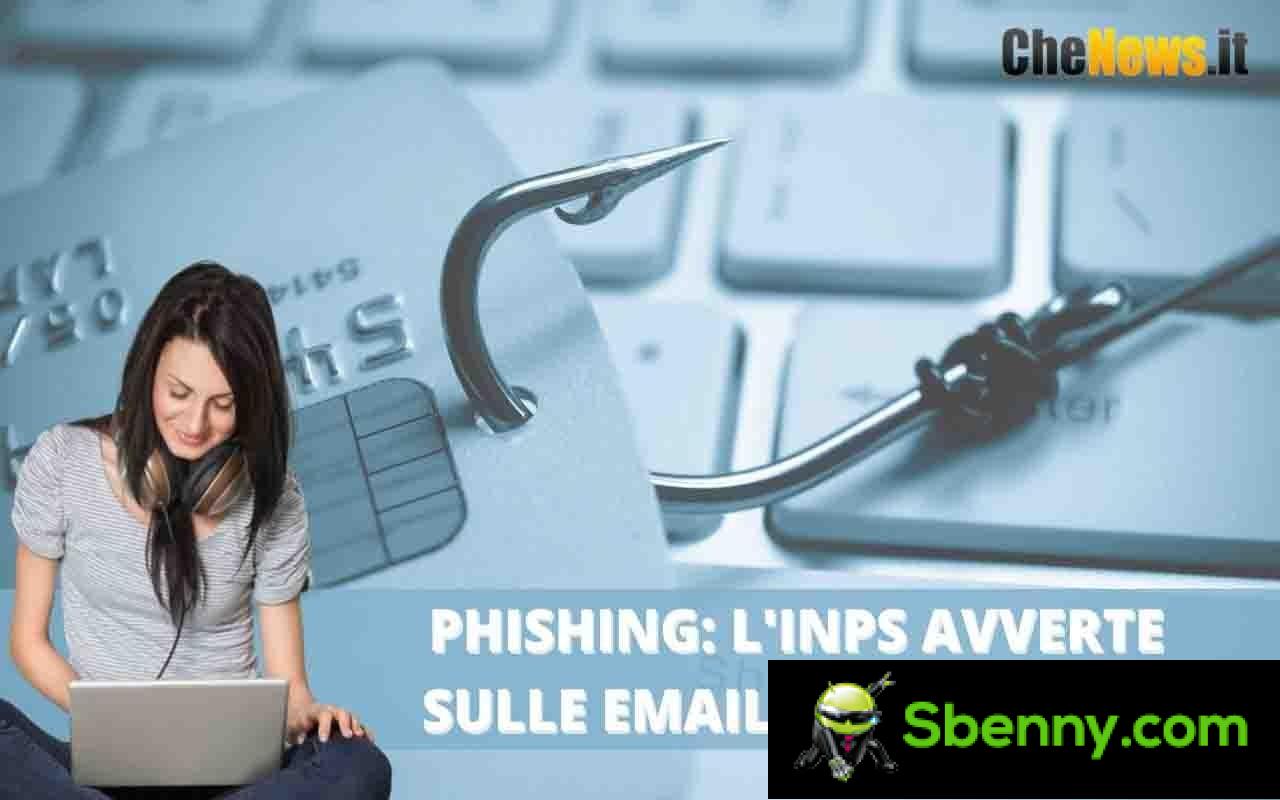Enter the group of job offers, bonuses, disability, law 104, pensions and news
Receive free news on job offers and the economy every day
- Telegram – Group
- Facebook – Group
They have never ceased to “rebuke” us about the risks we run every day, through computer traps created ad hoc to plunder our poor savings. The leaders of the INPS, on the threshold of Christmas, relaunch the new phishing alarm.
They are real enemies, even if they are invisible, hidden in twists and turns of the Net, ready to make us fall into their trap. I’m smart, no doubt about it, even if theirs intentions that are anything but benevolent.

They use their skills, even posing as the top management of the public administration, in this case the INPS, our Social Security Institute. They make us believe that it has come for us an official email or even a text message.
The real risk, however, is the one that clicks we could activate trojans. These are viruses that directly access our passwords saved on our computer. Or scammers, in a less sophisticated but direct way, ask us, through new web pages, to re-enter our sensitive data.
The final goal is one and only one: storm our savings, take possession of our sensitive data and access our bank account to make a “clean sweep”.
The INPS, with a press release issued periodically, through accurate dossiers, it warns all its users that an attempt is being made to scam them through phishing emails which, taking advantage of apparent communications from the Institute, invite you to click on a link that opens a dangerous new page.
At this point the user is asked to select a bank from those contained in a list and then enter your credentials. The trap…is wide open before us!
The leaders of INPS they do not cease to let us know, with extreme zeal, that this communication is aimed at the fraudulent theft of personal data. Credit card data is also at risk.
The scammers, with the false motivation of an alleged failure to transfer as the data recorded in the system would not be updated, try to steal our most important data, banking ones.
Inps: the phishing alarm sounds again
The INPS therefore does not stop inviting all users to be wary of such communications. He suggests that we ignore emails proposing to click on a link to obtain alleged payments from INPS.
The leaders of our National Social Security Institute, finally, they always want us to know that information on INPS services can only be consulted by accessing directly from the portal www.inps.it. They let us know that INPS, for security reasons, never sends, in any case, e-mail containing clickable links.
The success rates of phishing attacks vary greatly between organizations in different industries, according to a new study by experts.
For example, it has been found that goals of charities are three times more likely to click on simulated phishing emails than their counterparts in the healthcare industry.
The top three sectors by percentage clicks were charities, IT services and the local public sector. The IT services industry has seen a high click-through rate, although one might expect that workers in the industry would be more aware of the phishing threat.
Conversely, the three industries with the lowest click-through rates were retail, healthcare, and financial services. Healthcare and retail with less than 10% of targets succumbing to malicious emails disguised as coming from a trusted source.







Start a new Thread